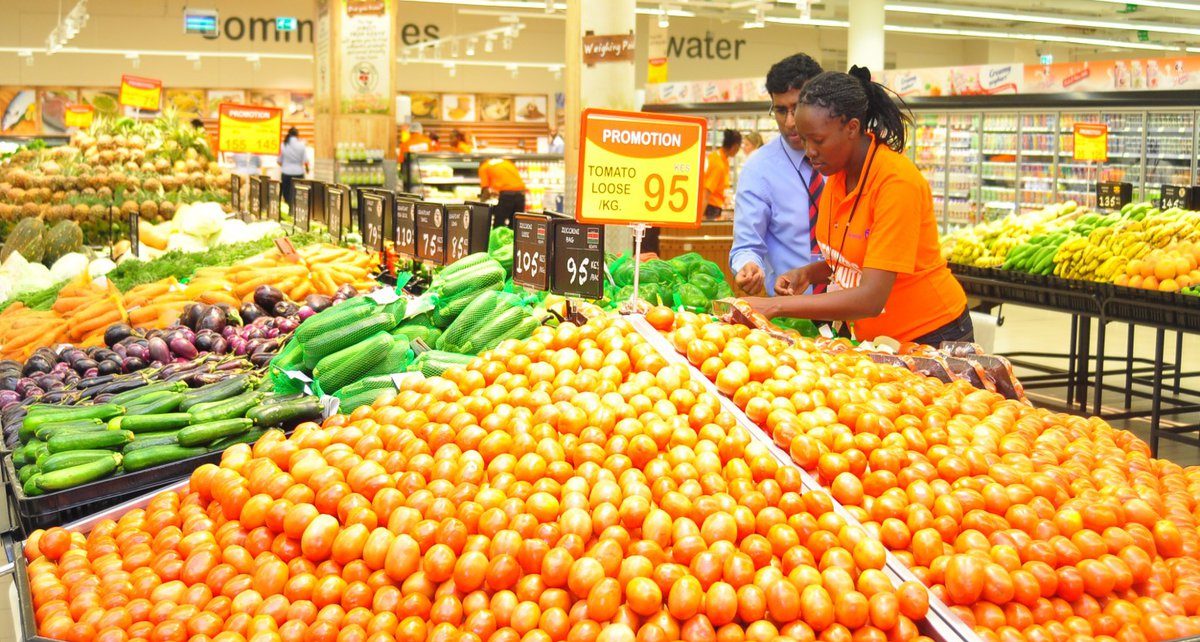Women spend more time loitering in supermarkets comparing prices, checking expiry dates, smelling perfumes and lotions
By Shifa Mwihaki
Feature Writer/Essayist
@Undercover KE
You must have entered a supermarket… not once, not twice… with the intention of buying the Sh80 yoghurt only to end up with a trolley that dents Sh5000 into your wallet.
Despite Kenyans crying there is no money, impulse buying, the act of looking at and feeling an irresistible urge to buy stuff you had not budgeted for, will be repeated in all supermarkets this year. But why do we buy things we had not budgeted for? What happens to the mind when a God fearing Kenyan drops the shopping list along with the small basket and goes for the biggest trolley before burning money like a bank on fire?
Local research shows impulse buying drives over 60 percent of supermarket sales and most employ endless tactics to ensure you spend more quid than intended. Forget the pricing tactic of retailing items at Sh299- which is just Sh300- and consider one tactic that never fails; that of stocking essential home supplies at the farthest end of the supermarket: Milk, cooking oil, bread and perishables like meat are never near cashiers, but at the back. Near the stores.
You notice the 1kg plum jam is sold with free tomato sauce tied to it
The supermarket bakery smells really nice and bread goes very well with milk. And next to the bread are enticing cakes and that stomach churning bhajia inside the glass counter. Just as you are about to saunter past the juice section, the promotion lady winks at you to test the latest chamomile tea. It is herbal. While testing you notice the 1kg plum jam is sold with free tomato sauce tied to it. So is the washing powder which has a smaller version tied to its top.
By the time you are leaving, the supermarket attendants have to help you carry the ironing board and non-stick sufurias alongside the washing powder, jam with tomato sauce, bread and black forest cake and two packets of chamomile tea…yet you had gone for a packet of milk!
Supermarkets sales rely on psychology but why are condoms stocked near the cashiers?
Supermarkets sales rely on psychology too. Children can cry for items so hard, embarrassed parents have no choice. Just why toys are at the level of a kid’s hands and sweets and chocolates are at the counter where children can throw them into the basket and the parent has no choice. Not with all the eyes staring.
And why are condoms also found near the cashier?
And those loyalty cards supermarkets give customers have a purpose beyond dishing out points. Never mind you only get one point for every Sh100 spent. The points can be redeemed against a purchase, get discounts, surprise birthday wishes and double points when shopping off-peak.
But the real reason is creating loyalty for repeat customers.
A 2012 research at Kenyatta University on ‘Factors influencing Impulse Buying in Supermarkets in Nairobi’ by Edward K Wanjugi revealed that repeat customers through loyalty cards were very crucial to overall sales from one simple fact: The psychology of shopping is such that shoppers frequent supermarkets whose merchandise, display and procedures they’re familiar with. This gives them a feeling of control and exploration-which leads to impulse buying! In unfamiliar supermarkets where you have no loyalty card, a customer only goes to the liquor section if all they needed was something stronger than strong tea.
Supermarket kitchens were opened to cater for busy singles who have no time for home cooking
The items mostly bought on impulse include cookies, chewing gum, mint, candy, sauces, crackers, pasta, clothes and groceries and the reason most have a soko section.
Wanjugi notes that the power of supermarkets is when customers are ‘shopping prisoners.’ Over 75 percent of shopping decisions are made when Kenyans are loitering with trolleys. Once the shopper leaves, the power is lost. But the internet has worked wonders for supermarkets which use marketing campaigns to drive foot customers through social media pages.
Supermarkets thus entice shoppers into momentous buying via exciting store layouts, product packaging and in-house promotions. They never fail. Convenient payment methods through credit and debit cards and mobile money and hire purchase have made impulse buying even more impulsive!
Men rarely compare prices, hardly buy brands they don’t know and most don’t see the discount items on the isles
Demographics and associated trends have also largely influenced impulse buying. For instance, Kenya’s population is largely youthful and single. Supermarket kitchens were opened to cater for busy singles who have no time for home cooking, but while eating end up leaving with a bottle of whiskey, a packet of cigarettes and a 10 packets of condoms…since most eat when stores are about to close!
Couples who have no children (yet) and single parent households also find supermarkets the best place for eating out while shopping. Why don’t supermarkets sell mutura, that Kenyan delicacy mostly eaten under the cover of darkness? It surely falls in the category of impulse items!
Then there is that not so small matter of gender.
Wanjugi’s research revealed that most loyalty card holders were working class and business women with secondary level education and above. Women also spent more time loitering in supermarkets comparing prices, reading expiry dates and smelling perfumes and lotions.
Men rarely compare prices, hardly buy brands they don’t know and most don’t see the discount items on the isles and hence the promotion lady with a smile as wide as River Nyando marketing chamomile tea!
You know you want tea leaves but is clueless on brand until your eyes cross with the lady promoting Chamomile tea
There are four categories of impulse buyers: The Pure Impulse buyer goes to buy a nail cutter, but the idea of warming food in seconds sees his legs emotionally wheeling him towards the microwave. The low price of the mtungi ya gas sees him hiring a cab home!
Suggestive Impulse Buying occurs when you are going to buy an insect killer but sees a brand of toilet brush and its love at first sight.
The third is Reminder Impulse Buying when the salt stares at you as reminder it’s running dangerously low at home.
Finally, there is Planned Impulsive Buying. You know you want tea leaves but is clueless on brand until your eyes cross with the lady promoting Chamomile tea…and which is twice the cost of the brand at far end of the shelf!

